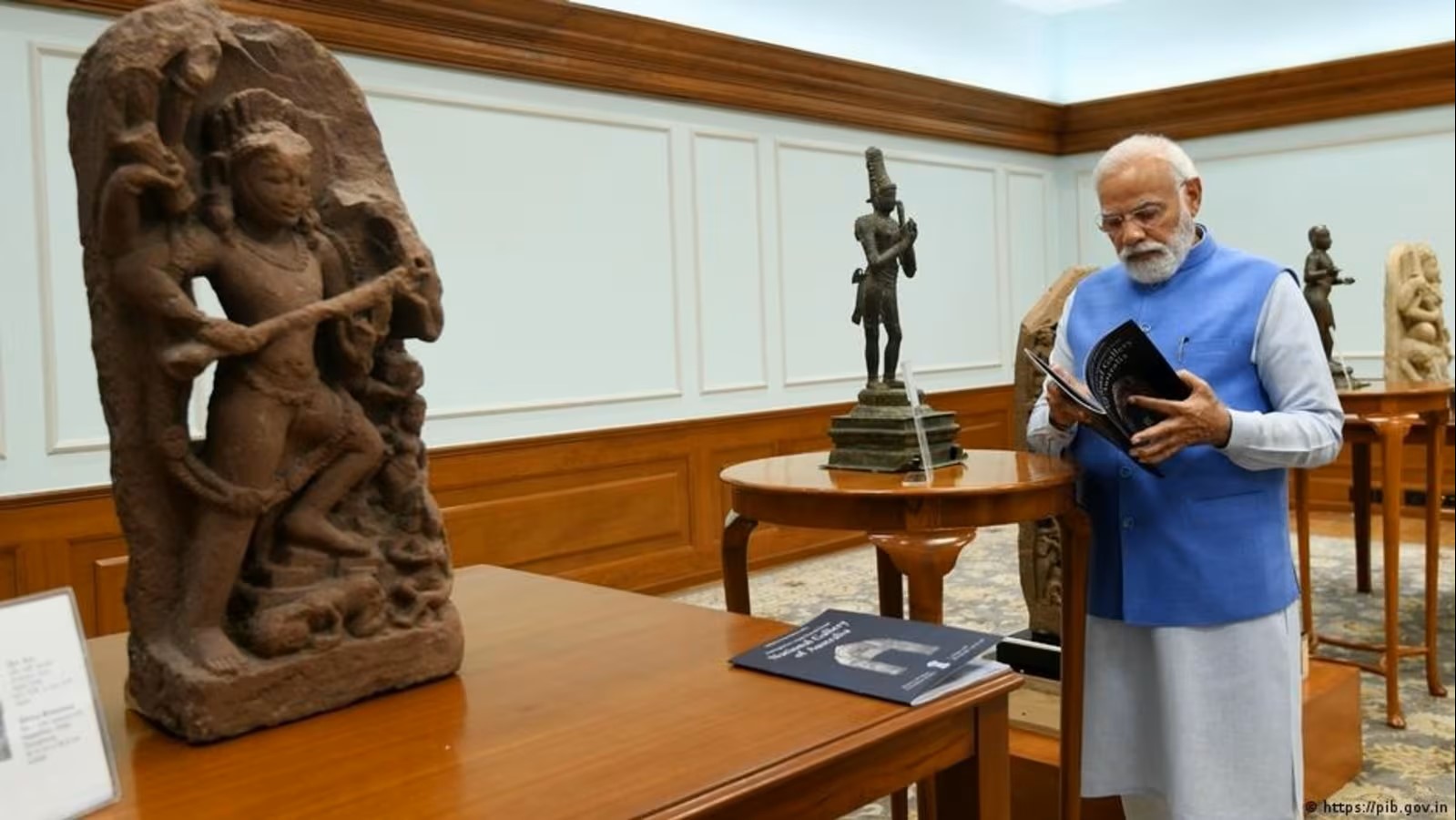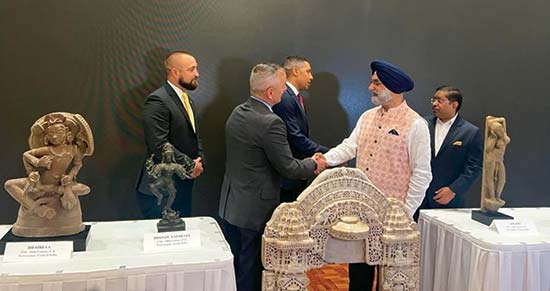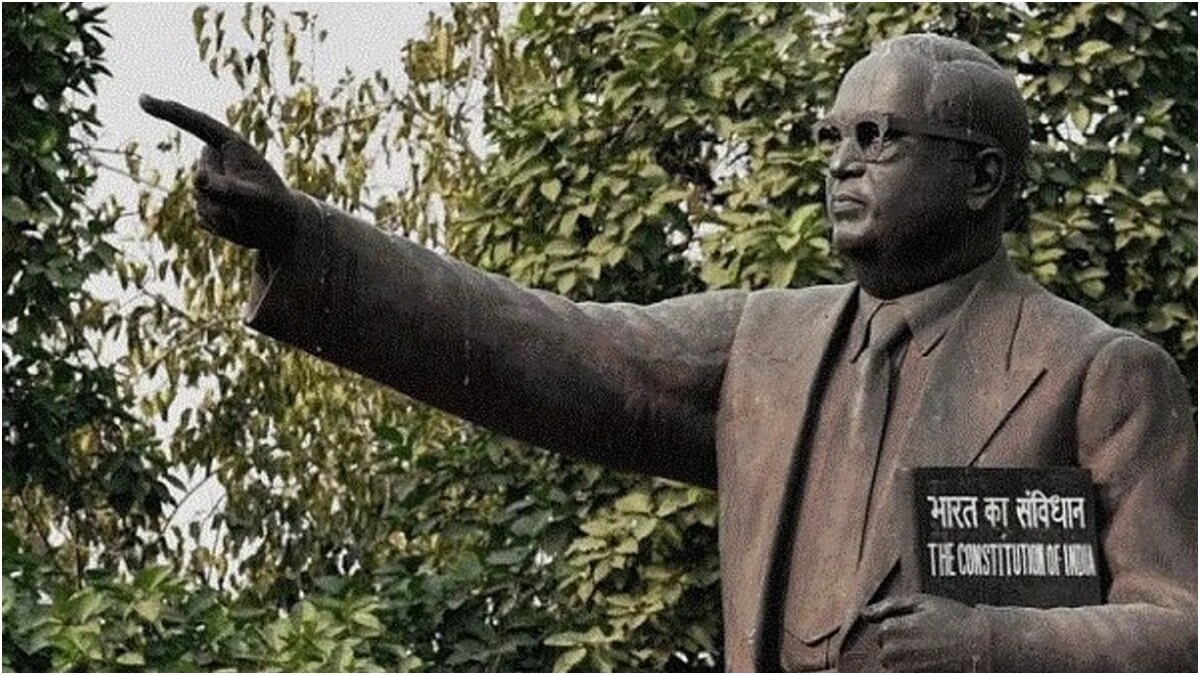For centuries, India’s vibrant cultural tapestry has faced a persistent threat: the illicit poaching and smuggling of its precious antiquities. These stolen artefacts, imbued with historical significance and artistic beauty, are ripped from their communities and sold on the black market, enriching criminals while leaving cultural voids in their wake. However, in recent years, India has emerged as a global leader in the fight against art smuggling, spearheading a multi-pronged approach to reclaim its stolen heritage and safeguard its cultural legacy for future generations.
 The past five years have witnessed a significant upswing in India’s repatriation efforts. Since 2019, a total of 314 stolen antiquities have found their way back home, primarily from the United States (262), followed by the United Kingdom (15), Australia (35), Canada (1), and Italy (1). These repatriated treasures span diverse categories, encompassing ancient sculptures, evocative paintings, and intricate religious artefacts. Each artefact represents a fragment of India’s rich history, a tangible link to forgotten stories and ancestral wisdom. Their return breathes new life into these narratives, allowing communities to reconnect with their past and fostering a deeper appreciation for their cultural heritage.
The past five years have witnessed a significant upswing in India’s repatriation efforts. Since 2019, a total of 314 stolen antiquities have found their way back home, primarily from the United States (262), followed by the United Kingdom (15), Australia (35), Canada (1), and Italy (1). These repatriated treasures span diverse categories, encompassing ancient sculptures, evocative paintings, and intricate religious artefacts. Each artefact represents a fragment of India’s rich history, a tangible link to forgotten stories and ancestral wisdom. Their return breathes new life into these narratives, allowing communities to reconnect with their past and fostering a deeper appreciation for their cultural heritage.
India’s fight against art smuggling transcends reactive measures. A robust proactive approach forms the bedrock of its strategy. Whenever the theft of an antiquity is reported, swift action is taken. Authorities meticulously file First Information Reports (FIRs) and issue “Look Out Notices” to law enforcement agencies and customs channels across the country. This nationwide vigilance acts as a deterrent, making it considerably harder for smugglers to operate within Indian borders. Furthermore, when stolen artefacts are traced abroad, collaborative efforts with international law enforcement agencies and bodies like the Archaeological Survey of India (ASI) come into play. Through meticulous legal procedures and diplomatic negotiations, India tirelessly pursues the return of its stolen treasures, ensuring justice for its cultural heritage.
Recognizing that art smuggling is a transnational crime, India has actively championed the cause of repatriation on the global stage. During the G20 Culture Working Group discussions, India spearheaded the crucial topic of “Re(ad)dress: Return of Treasures.” This forum served as a platform to advocate for international cooperation and a strengthened legal framework that facilitates the rightful return of cultural heritage. India’s proactive stance underscores its commitment to fostering a collaborative global approach. It recognises that collective action is key to effectively combatting art smuggling and ensuring the responsible stewardship of cultural treasures worldwide.
Despite the notable successes in repatriation, challenges persist. Smuggling networks often operate across international borders, demanding robust international cooperation and intelligence sharing. Additionally, navigating complex legal frameworks and proving ownership can be time-consuming and resource-intensive, requiring unwavering commitment and dedicated efforts.
India’s journey to reclaim its stolen heritage necessitates continued vigilance and a multifaceted approach. Strengthening domestic measures, fostering international collaboration, and advocating for a more robust legal framework will remain crucial elements in this ongoing battle. By spearheading these efforts, India safeguards its cultural treasures and sets a precedent for other nations facing similar challenges, paving the way for a future where cultural heritage is protected and cherished for generations to come.




